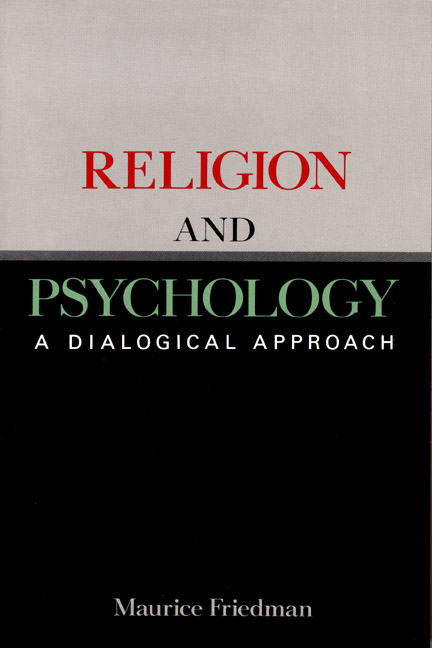"Friedman has produced a text of deep insight which will be useful for clinicians, counselors, and scholars....This book suggests that Martin Buber is a philosopher with whom both religionists and psychologists must continue to wrestle." --Daniel Liechty, Institute of Pennsylvania Hospital, Philadelphia
At the heart of this book is Friedman's belief that the psychological task of "becoming" is essentially a religious one. Further, there are a number of places in life where religion and psychology intersect, and, when they meet, they generate important questions.
In addressing these questions, Friedman draws upon the long tradition that has its antecedents in the Hebrew Bible and continues through the wisdom stories of the Hasidim to Buber. Friedman analyzes the psychologies of religion of four major thinkers--Jung, Maslow, Fromm, and Frankl--and uses them to explore the limitations of using psychology to achieve what he calls "the secret of the bond between person and person." Further, Friedman recognizes that there are specific implications for therapeutic practice in the meeting between religion and psychology and, in the last part of the book, concerns himself with the extension and application of Buber's philosophy of dialogue to two contemporary movements in psychotherapy: dialogical psychotherapy and contextual therapy.
MAURICE FRIEDMAN is the author of Encounter on the Narrow Ridge (Paragon House, 1991), a biography of Martin Buber that New York Newsday called "superb," the Los Angeles Times said was "remarkably lucid and accessible", and Choice called "perhaps the best biography of the year." In addition to being an acknowledged authority on Buber, Friedman is the author of twenty books and the recipient of numerous fellowships and awards, among them the National Jewish Book Award in 1985.




